
Teachers are given more attention through many policies when the Law on Teachers is implemented - Photo: QUANG DINH
Mr. Vu Minh Duc said: After many adjustments, the draft Law on Teachers still closely follows the content of the 5 policies approved by the Government and the National Assembly, and at the same time clarifies: Teachers in public educational institutions are civil servants, implementing the provisions of the Law on Civil Servants (on recruitment, use, management, salary scale system...) and are subject to the management of competent state management agencies, and specific regulations for teachers.
Teachers in non-public educational institutions are employees subject to the provisions of the Labor Law and specific regulations for teachers.
In some contents, the draft law maximizes general regulations without distinguishing between public and non-public teachers, such as regulations on titles, professional standards, teacher ethics, rights and obligations, training policies, support, attraction, emulation, rewards...
* Sir, there is a great need for breakthrough policies to encourage good teachers who love their profession and want to stay long-term and attract qualified young people to follow the profession. How has this been addressed in the draft Law on Teachers?
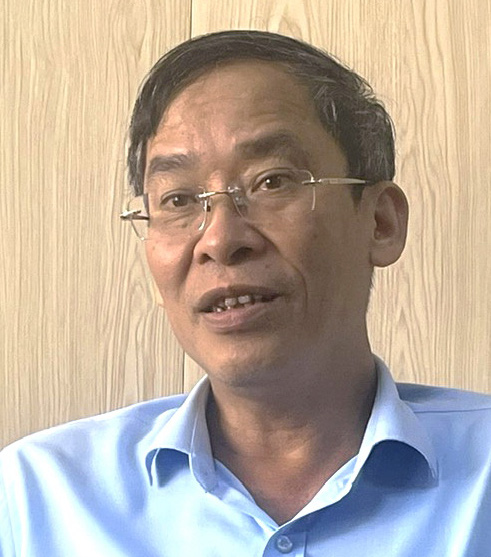
Mr. Vu Minh Duc
- Policies to motivate teachers to be dedicated and devoted to their profession are not only salary policies aimed at improving teachers' lives.
Teachers will be elevated in status, honored and recognized by society, and have their reputation and honor protected. Teachers will also be provided with favorable working environments, opportunities for learning and development, and opportunities to be more proactive and creative.
With the contents included in the draft Law on Teachers, the education sector will be more proactive in recruiting, using, and developing the teaching staff because there are strong enough legal sanctions to remove the bottlenecks that currently exist in reality in recruiting and using teachers, and attracting talented people to the teaching profession.
The Draft Law on Teachers also creates equal development opportunities between public and non-public teachers. For the first time, the legal status of non-public teachers is established as teachers, not just as employees under the mechanism of labor contracts.
When will teachers be able to live on their income?
* The proposal to give teachers the highest salary in the administrative career salary scale was proposed more than 10 years ago and has been mentioned many times in meetings and in the draft Law on Teachers.
But in reality, many teachers do not make a living from their legitimate income. How will the Law on Teachers affect this issue?
- The highest salary for teachers in the administrative career salary scale was set out in Resolution 29-NQ/TW in 2013. Resolution 27-NQ/TW also stated: "Teachers' salaries are ranked highest in the administrative career salary scale"... This was also stated in Conclusion 91 of the Politburo on continuing to fundamentally and comprehensively innovate education and training.
Over the years, the Ministry of Education and Training has coordinated with the Ministry of Home Affairs and relevant ministries and branches to properly implement this spirit, and when it is legalized, this will have a basis for more convenient implementation.
Accordingly, teachers' salaries are arranged on a salary scale according to job positions suitable to the characteristics of teachers' work.
In addition, teachers enjoy preferential allowances according to their profession in the education sector.
The Ministry also proposed that the preferential allowance by profession accounts for 35% of the total basic salary fund of the entire industry and be allocated to different groups suitable to the specific job and workplace...
* In this draft Law on Teachers, there are some specific proposals such as increasing allowances for preschool and primary school teachers, and raising one salary level for newly recruited teachers. What is the basis for the Ministry of Education and Training to propose this?
- Currently, the professional allowance for teachers is regulated at 25% for university lecturers and 35-70% for preschool and primary school teachers depending on the subject and working region. In the draft, the drafting committee proposed to increase the allowance for preschool and primary school teachers by 5-10%. The reason comes from the fact that preschool and primary school teachers have longer working hours at school, more difficult working conditions and more pressure.
In addition, the draft also includes a proposal to raise the salary of newly recruited teachers. According to our survey, 61% of teachers who quit the profession are under 35 years old and one of the reasons for this is that their low income is not enough to cover their living expenses.
While young people have many things to worry about such as supporting themselves, taking care of their children, the need to study to improve their qualifications...
The salaries of teachers with less than 5 years of experience are currently very low. Therefore, raising the starting salary for teachers by one grade is a proposal to encourage young people to enter the teaching profession. This is also part of realizing the goal of having the highest salary for teachers in the salary scale.
* But when proposing, did the drafting committee consider feasibility in the current context?
- The Ministry of Education and Training shall coordinate with the Ministry of Home Affairs to assess the impact and present a specific plan on this matter, ensuring that the increase in allowances and salary levels for the above subjects is consistent with national resources. According to calculations, increasing one salary level for teachers when the starting salary is only 14% higher than other professions.
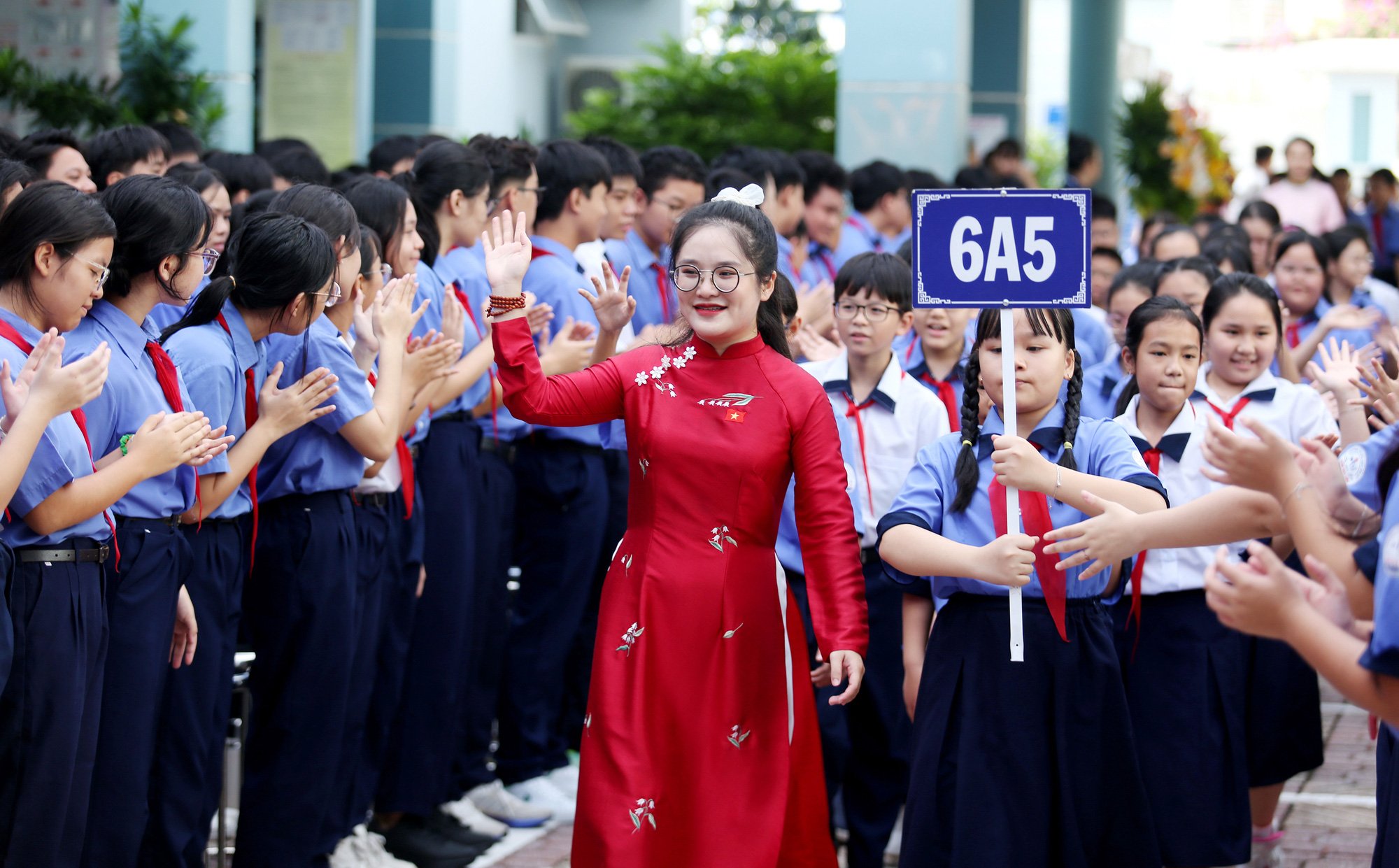
The draft Law on Teachers also creates equality in development opportunities between public and non-public teachers - Photo: PHUONG QUYEN
Free tuition for teachers' children, right?
* The proposal to exempt tuition fees for teachers' children is facing mixed opinions, even criticism, when it is said that teachers are demanding. Many people in the education sector do not feel that this shows respect, but on the contrary, they seem to be classified as receiving support like other disadvantaged people. What do you think about these opinions?
- In the process of drafting the Law on Teachers, the drafting committee based on the common wishes of teachers regarding preferential policies for teachers' children, specifically exempting tuition fees at all levels.
The drafting committee's view when including this content in the draft law is also to show respect and recognition of the dedication of teachers, contributing to encouraging teachers to feel secure in their profession. In fact, in some other specific sectors, there are also preferential policies.
For example, policies for insurance or medical care for relatives of people working in the armed forces. Teaching is also a special profession to propose priorities and incentives for their relatives.
* The proposal is valuable, but the lack of consensus shows that the drafting committee has not considered the psychological reactions of a segment of teachers - the beneficiaries of this policy...
- The drafting committee is continuing to listen to opinions from National Assembly delegates, ministries, people and teachers themselves on this matter.
In principle, we will only include mature content with high consensus in the final draft law to be submitted to the National Assembly. The drafting committee will analyze comments and assess the impact of this proposal in specific cases (scope, policy beneficiaries).
In addition, the proposal must also consider the accompanying conditions, specifically the budget source to meet. The proposal will also be considered on the basis of harmonious balance with other fields and industries.
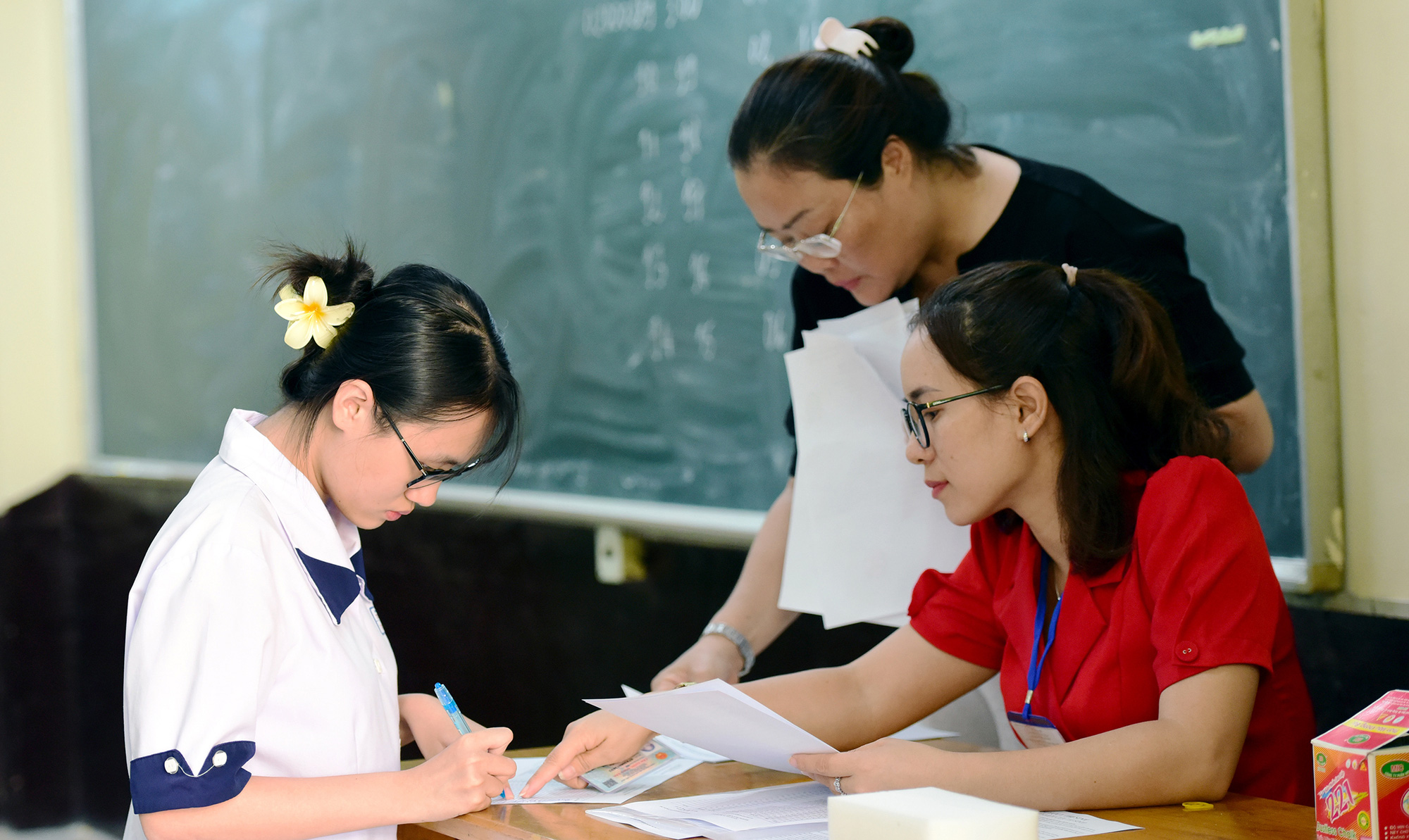
Teachers need to be provided with favorable working environment, learning and training opportunities, and opportunities to be more proactive and creative - Photo: DUYEN PHAN
Further consideration of the practice certificate
* The regulation of teacher practice certificates was considered an important content in the previous draft Law on Teachers, but is now removed from the latest draft. Why?
- In the original draft, the teacher's practice certificate was included due to the special requirements for teacher quality. Currently, we still maintain the view that teachers need to pass an examination to be granted a practice certificate. Because for those who are trained from a teacher training school, they have a knowledge base but they still need to be trained to have pedagogical skills to be able to practice.
In addition, there are people who do not study pedagogy but want to enter the teaching profession, so they need to improve their professional skills. The assessment exam not only ensures the use of many diverse sources of teachers, but also ensures quality. This is what many countries in the world have done.
However, because this is a new content, caution is needed, so the drafting committee has not included it in the draft law at this time and will continue to research and organize a pilot. It is possible that this content will be included again in the cycle of amending and supplementing the law.
Not that seniority is not recognized for teachers
* When teachers' salaries are calculated in the new way, there will no longer be seniority allowances like the current ones, which is a disadvantage for teachers with many years of service. Does the Ministry of Education and Training take this into account when proposing to ensure teachers' rights?
- When salaries are paid according to job position, teachers will only have salary, professional allowance, attraction allowance (when working in difficult areas) and no seniority allowance. But that does not mean that teachers' seniority is not recognized. Specifically, it will be calculated and shown specifically in salary level and job position.
Dr. Nguyen Kim Hong (former principal of Ho Chi Minh City University of Education):
3 ways to increase teacher income without affecting other industries
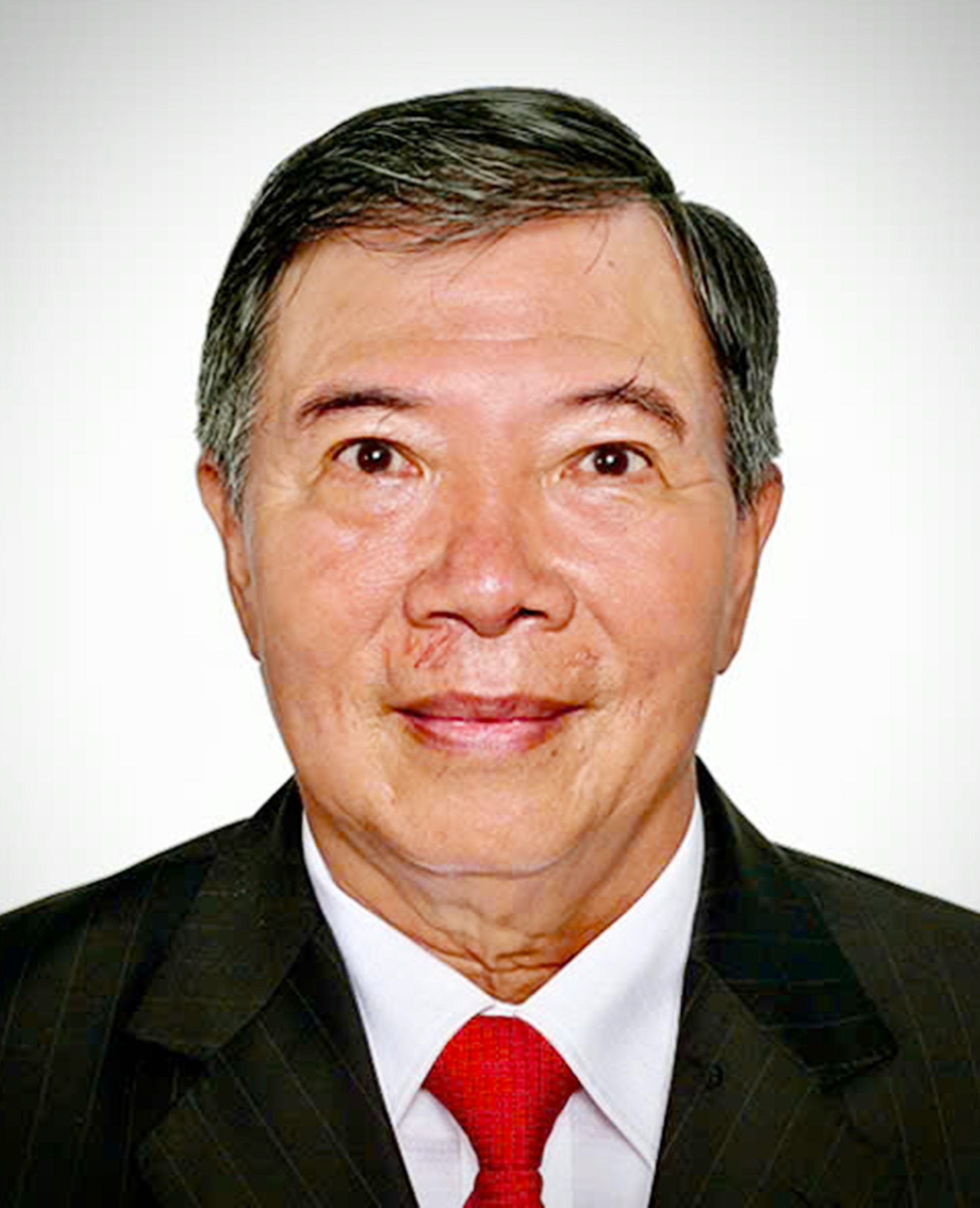
Dr. Nguyen Kim Hong
Teachers are looking forward to the upcoming Law on Teachers as a fundamental change in society's perception as well as the role of teachers in the country's socio-economic development.
There are many ways to do that, and one of the current ways to make a difference is to increase teachers' income.
When the National Assembly recognizes that education development is a top national policy, it is necessary to take care of teachers' material well-being and high salaries.
However, in my opinion, there are the following ways to increase teachers' income without affecting other professions.
1. It is necessary to raise the starting salary scale for teachers, at least one level higher than the level currently set in the State's salary table for teachers.
Looking at it, currently all teachers working in educational institutions from kindergarten to university must have at least 4 years of university education and 6 years if they want to teach at college or university level. That means this level of training is equivalent to that of the army and police.
In the military, their salary scale has 5 levels, after about 18 years they have reached the final level of primary school teachers and university lecturers. Although not directly comparable, but if possible, the starting salary for teachers should be raised by one or two levels.
2. Is this enough for teachers to live in? If not, I hope the government will build public housing for teachers in schools, where teachers can stay during working hours and then move them elsewhere after working hours.
Public housing must be sufficient for the family. If this option is no longer possible, there should be a housing fund for teachers at a moderate level, with loans for them to repay over 35 years of work so that after 40 years they have a place to "go in and out".
3. Many people really want to enjoy seniority as a teacher, with a seniority salary level as a teacher, they will have a very high retirement income. However, I do not want to put education in the seniority group, but teachers must have an allowance during their teaching time and this allowance is not included in their pension so that when they retire, they will have the same salary as other civil servants.
What can't teachers do? How are they protected?
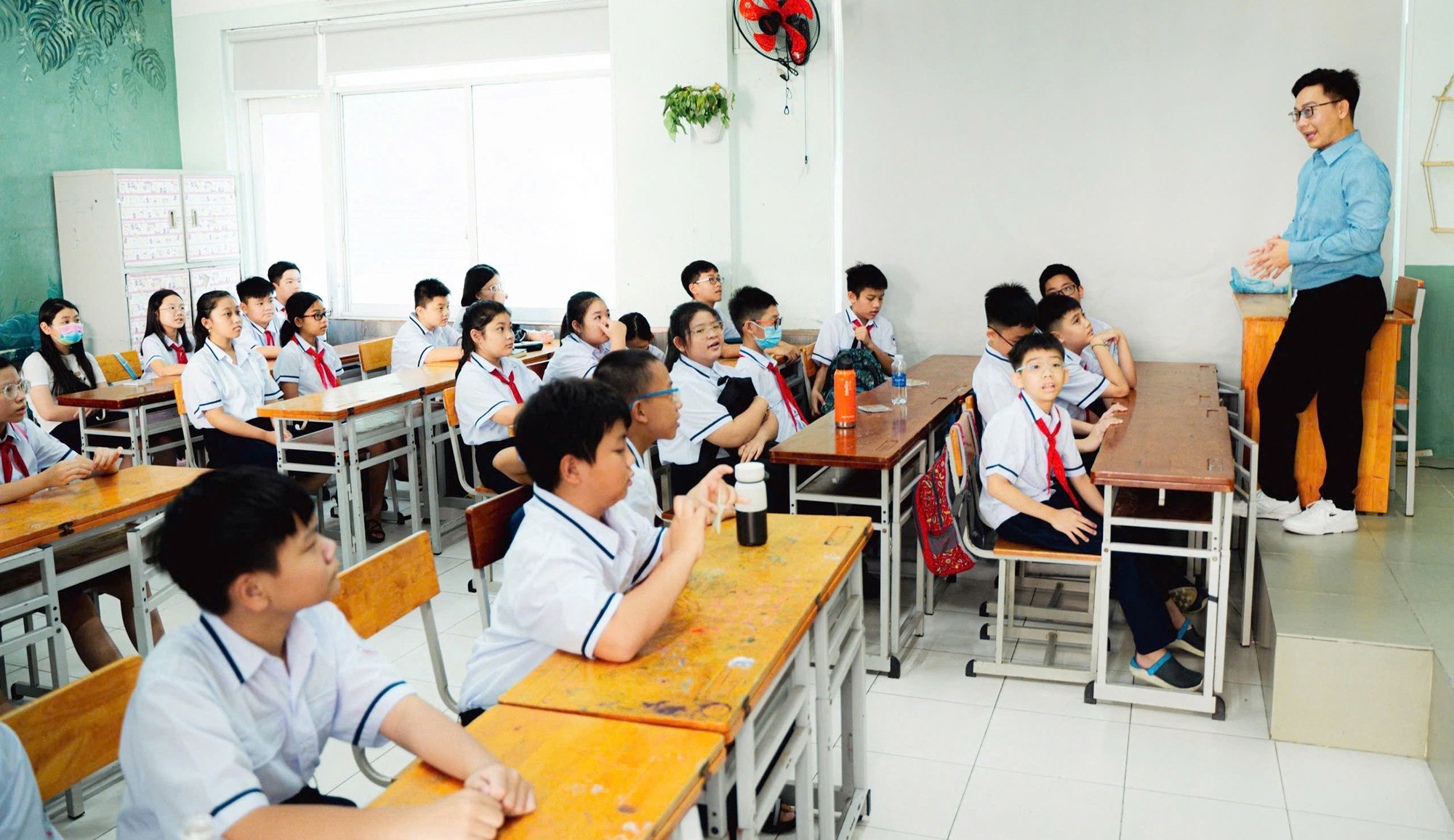
Mr. Nguyen Thong - teacher at Nguyen Du Secondary School, District 1, Ho Chi Minh City - Photo: THANH HIEP
* In addition to policies on teachers' welfare, there should also be specific and updated regulations on responsibilities, especially on what teachers are not allowed to do. So what is this regulation in the draft law?
- The draft has general provisions that teachers in public educational institutions are not allowed to do things that civil servants are not allowed to do according to the provisions of the law on civil servants.
Teachers in non-public educational institutions and foreign teachers are not allowed to do prohibited work in the field of labor according to the provisions of labor law.
In addition, the draft has some more specific regulations on the responsibilities of teachers, based on practice.
Specifically, not discriminating between students, not cheating, falsifying results in enrollment and student assessment, not forcing students to participate in extra classes in any form, not taking advantage of the name of a teacher to commit illegal acts...
* Compared to the actual situation, the regulations on what teachers are not allowed to do in the draft law are difficult to cover everything, so should the Ministry of Education and Training develop a separate code of conduct for teachers to have a basis for implementation?
- With its authority, the Ministry of Education and Training has developed a circular to promulgate a code of conduct for teachers. This draft is also attached to the draft Law on Teachers this time.
* The draft regulations include provisions on what teachers cannot do, including the regulation of not disclosing information about teachers' violations until there is an official conclusion from the competent authority.
Will this reduce the supervisory role of society and the media when many violations that are not reported by the people and the media will be difficult to detect and handle?
- I think the draft does not reduce the supervisory role, because it only stipulates not to disclose information until there is an official conclusion from the competent authority.
In fact, there are many cases where the competent authorities have not clearly verified responsibility, right or wrong, but they have been spread widely on social networks, causing great pressure on teachers.
While the nature of the teaching profession is to set an example, teachers being posted online, even criticized and insulted in front of many people and students will reduce the teacher's reputation.
The draft regulation is to protect teachers but does not mean to cover up wrongdoing. Citizens, parents, and students can still exercise their supervisory role and report the incident to the competent authority to receive and process information, and the incident can be made public when there is a clear conclusion.
Source: https://tuoitre.vn/luat-nha-giao-nang-thu-nhap-vi-the-nguoi-thay-20241012081528666.htm


![[Photo] President Luong Cuong receives President of the Cuban National Assembly Esteban Lazo Hernandez](https://vphoto.vietnam.vn/thumb/1200x675/vietnam/resource/IMAGE/2025/9/30/4d38932911c24f6ea1936252bd5427fa)
![[Photo] Solemn opening of the 12th Military Party Congress for the 2025-2030 term](https://vphoto.vietnam.vn/thumb/1200x675/vietnam/resource/IMAGE/2025/9/30/2cd383b3130d41a1a4b5ace0d5eb989d)
![[Photo] The 1st Congress of Phu Tho Provincial Party Committee, term 2025-2030](https://vphoto.vietnam.vn/thumb/1200x675/vietnam/resource/IMAGE/2025/9/30/1507da06216649bba8a1ce6251816820)

![[Photo] Panorama of the cable-stayed bridge, the final bottleneck of the Ben Luc-Long Thanh expressway](https://vphoto.vietnam.vn/thumb/1200x675/vietnam/resource/IMAGE/2025/9/30/391fdf21025541d6b2f092e49a17243f)
![[Photo] General Secretary To Lam, Secretary of the Central Military Commission attends the 12th Party Congress of the Army](https://vphoto.vietnam.vn/thumb/1200x675/vietnam/resource/IMAGE/2025/9/30/9b63aaa37ddb472ead84e3870a8ae825)
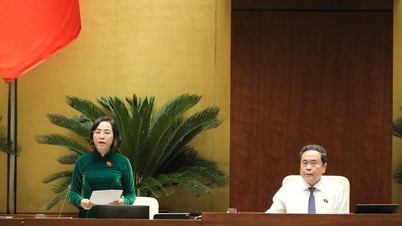

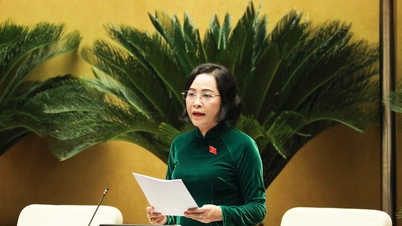


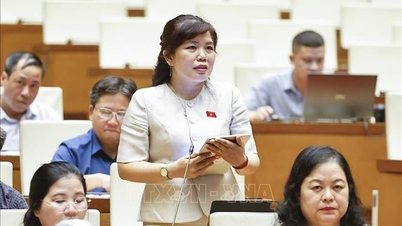


















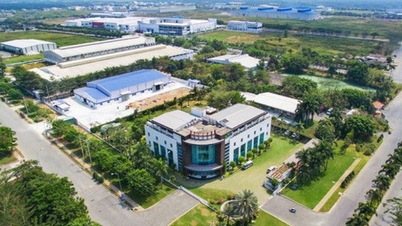





































































Comment (0)